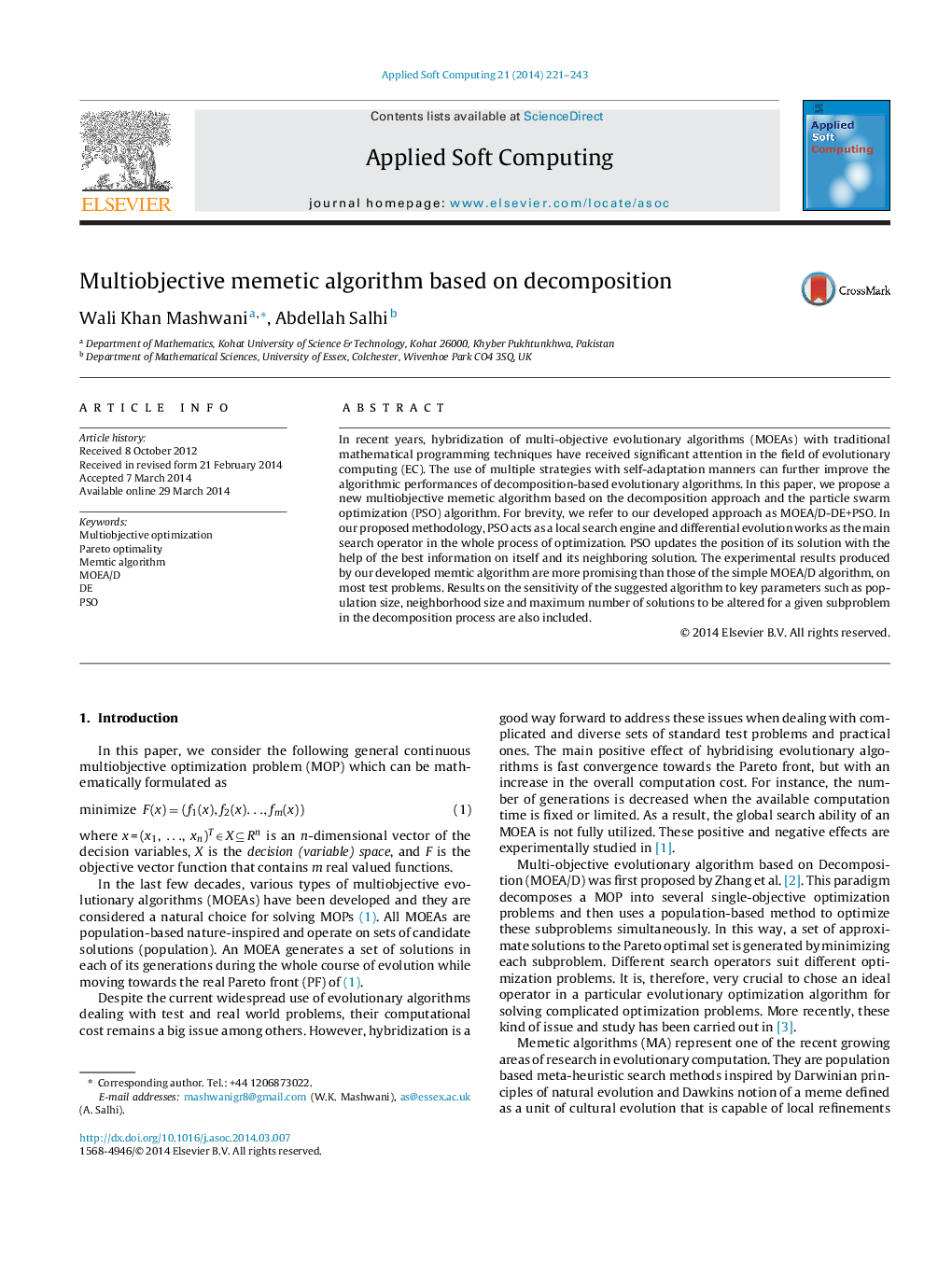| Article ID | Journal | Published Year | Pages | File Type |
|---|---|---|---|---|
| 495455 | Applied Soft Computing | 2014 | 23 Pages |
•The algorithm uses the concept of decomposition borrowed from traditional mathematical programming to handle the approximation to the PF of the overall problem.•It also uses two different search operators, namely DE and PSO to generate new solutions; hence the hybridization idea.•The two used operators compete for resources; this is achieved through a dynamic resource allocation.•Standard benchmarks, ZDT problems and the recently formulated CEC’09 test set have been used for testing.•Performance results based on the IGD metric show that the hybrid algorithm is overall superior to versions with single search operators.
In recent years, hybridization of multi-objective evolutionary algorithms (MOEAs) with traditional mathematical programming techniques have received significant attention in the field of evolutionary computing (EC). The use of multiple strategies with self-adaptation manners can further improve the algorithmic performances of decomposition-based evolutionary algorithms. In this paper, we propose a new multiobjective memetic algorithm based on the decomposition approach and the particle swarm optimization (PSO) algorithm. For brevity, we refer to our developed approach as MOEA/D-DE+PSO. In our proposed methodology, PSO acts as a local search engine and differential evolution works as the main search operator in the whole process of optimization. PSO updates the position of its solution with the help of the best information on itself and its neighboring solution. The experimental results produced by our developed memtic algorithm are more promising than those of the simple MOEA/D algorithm, on most test problems. Results on the sensitivity of the suggested algorithm to key parameters such as population size, neighborhood size and maximum number of solutions to be altered for a given subproblem in the decomposition process are also included.
Graphical abstractThe hybrid algorithm, namely, MOEA/D-DE+PSO had performed better than MOEA/D on most continuous MOPs. This means that the use of two search operators in MOEA/D did alleviate the risk of choosing the non-suitable search operator. The use of different search operators with dynamic resources allocation is good idea in order to tackle complicated optimization problems in the context of multiobjective optimization.Figure optionsDownload full-size imageDownload as PowerPoint slide
